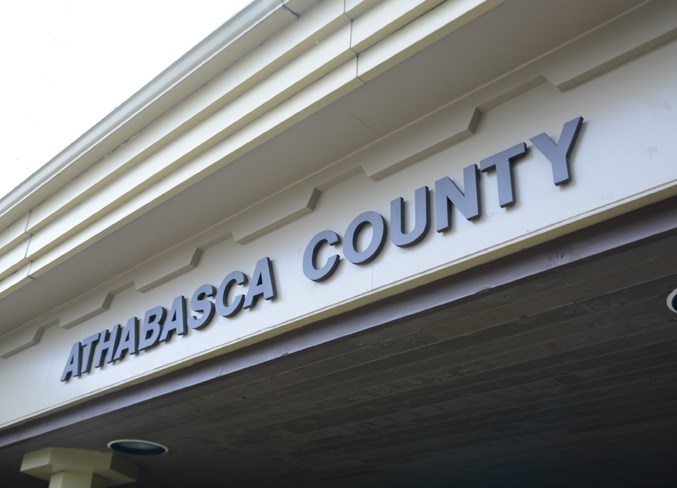ATHABASCA – How much should Athabasca County residents have to pay for the men, women, and equipment that fight to save their homes when a fire breaks out?
Athabasca County councillors tackled the question during their first discussion about a new fire cost recovery policy, presented by manager of protective services Travis Shalapay during the Feb. 18 committee of the whole meeting.
Shalapay’s team investigated what other municipalities were doing across the province, but after finding a variety of cases, ranging from total cost recovery to subsidized models, they turned to council for guidance.
“Does council wish to pursue a more robust cost recovery, where we try to fully recover the cost of providing service? Do we want to pursue more of a partial recovery where we have different options?” asked Shalapay.
Councillors were in favour of a variety of options, ranging from a highly subsidized model for people lacking fire insurance, to a more aggressive cost recovery plan that would reduce the burden on taxpayers.
“There are not many tangible things we provide to rate payers on a given day; they care about water, they care about roads, and you can add in there that they care that their house doesn’t burn to the ground,” said Coun. Gary Cromwell.
‘When it does, and they’re having the worst day of their life, they (shouldn’t) get hit with a multi-thousand dollar bill. There should be a partial cost recovery differentiating between insured and uninsured.”
Cromwell said he would like to see a capped fee at no more than $5,000 for insured residents and $2,500 for the uninsured — no data was provided for how much the average recovery bill is — something other councillors disagreed with.
“That incentivizes people not to insure their property adequately, and I think we have a responsibility to ensure that we have adequate insurance on our properties,” said Coun. Ashtin Anderson.
Anderson recognized sometimes things happen, like an unnoticed change in policy from a company, but stressed residents should be responsible for costs, lest the taxpayer have to pick up the tab.
“I really think that residents bear responsibility. I would never want our policies to incentivize them to not cover or carry adequate insurance and I feel by having a reduced amount for uninsured, that’s exactly what you’re doing.”
The original decision to look at cost recovery came after handful of scenarios where cost recovery led to significant bills, according to Shalapay, including structure fires where the costs either exceeded coverage, or none was in place, and outdoor/wildland fires that weren’t covered by policies.
“It’s a difficult discussion. When a lot of your neighbourhood is burnt out, and how many people don’t have insurance, there’s no mercy. Same if you’re uninsured in your vehicle, there’s no mercy and you’re fined,” said Reeve Tracy Holland, who referenced the ongoing situation in Jasper as an example.
Councillors also discussed the appeal process, as well as what counted as “compassionate grounds,” a term Shalapay used to describe scenarios where someone didn’t have the financial means to cover the bill.
“As far as the ability to waive costs on compassionate grounds goes, I think both of those should come to council,” said Anderson.
“I don’t think the CAO or any member of administration should ever be put in the position where they have to make that decision on their own.”
Administration does handle the initial appeal process for bills, including making sure all the items on the bill were warranted. Past that, anything else is decided by councillors, including cases like Gilbert Duigou’s from fall 2023, who was hit was a $14,000 bill his insurance didn’t fully cover.
Administration will be bringing the topic back to councillors with additional data later this year, and recommendations on a cap-based system and possibly causation impacts on billing.
“We’re a community that should care for each other, and I certainly don’t have any objection of showing compassion with my tax dollars,” said Coun. Joe Gerlach at the end of the discussion.
“We’re fortunate enough to have resources that we’re able to tax, and spread some of that money around to our residents. Compassion should be one of our first priorities.”



